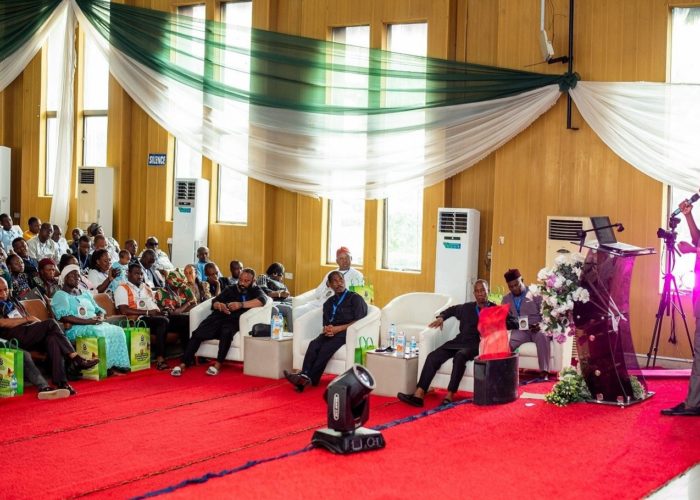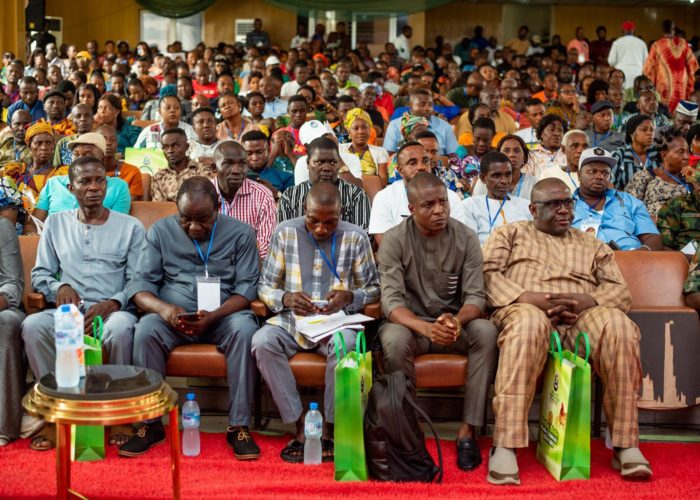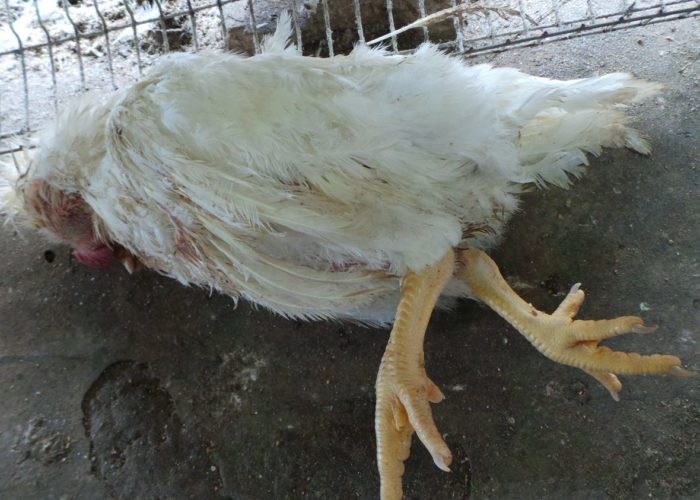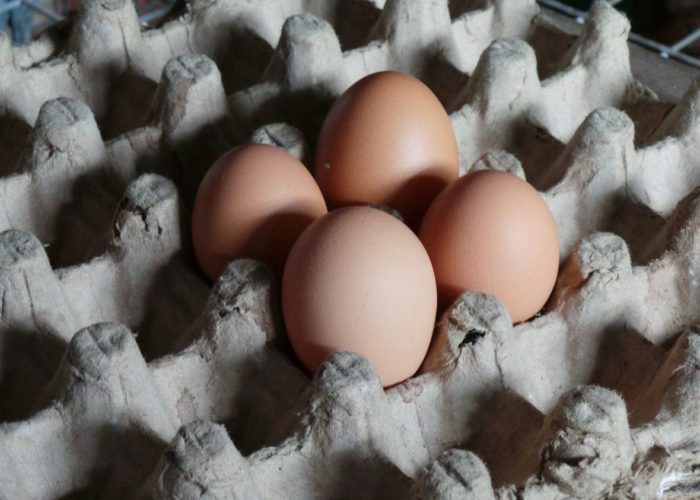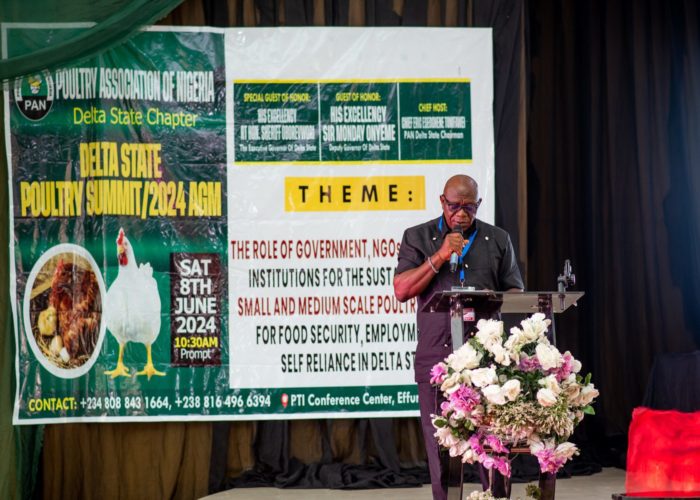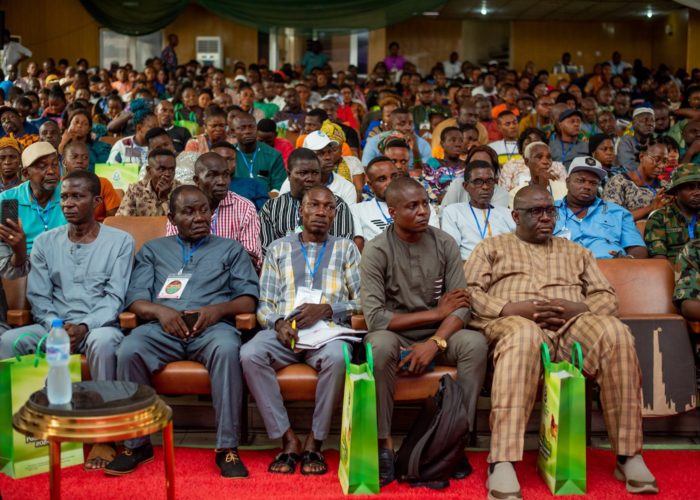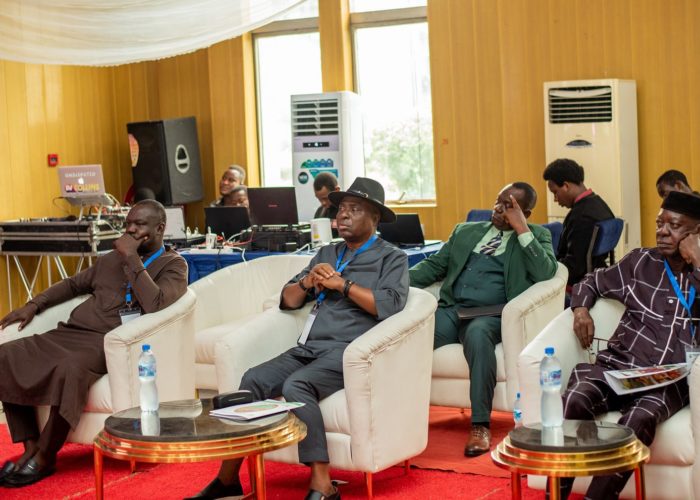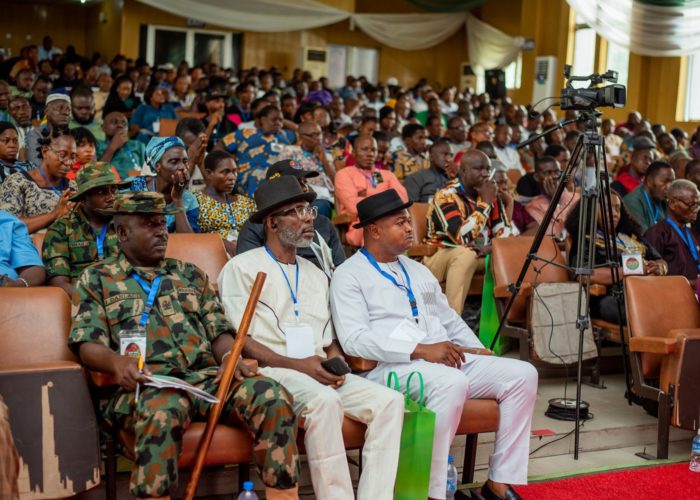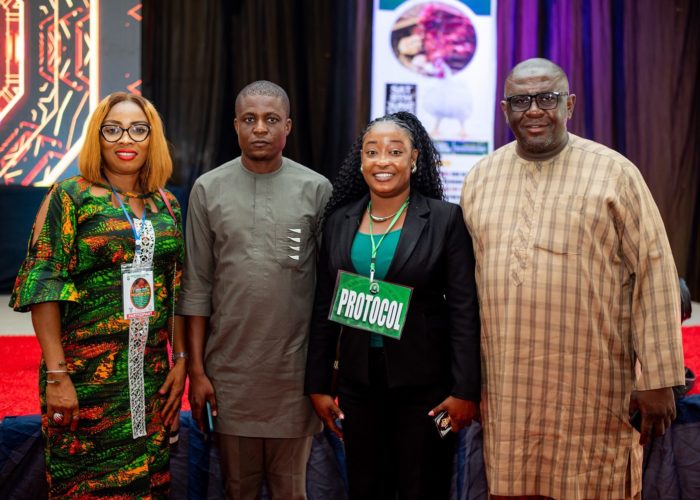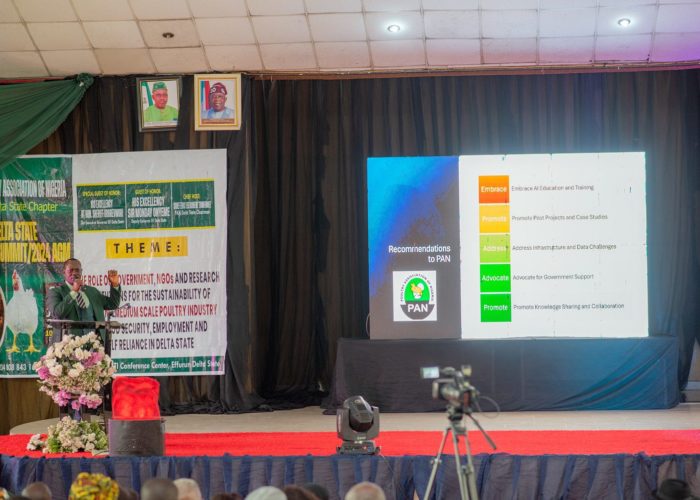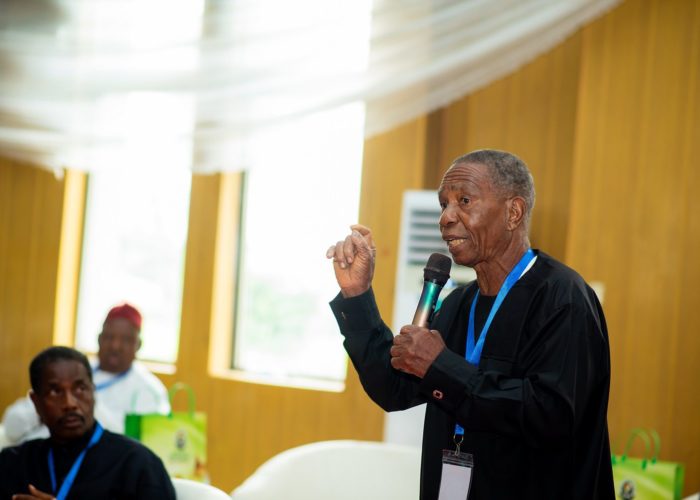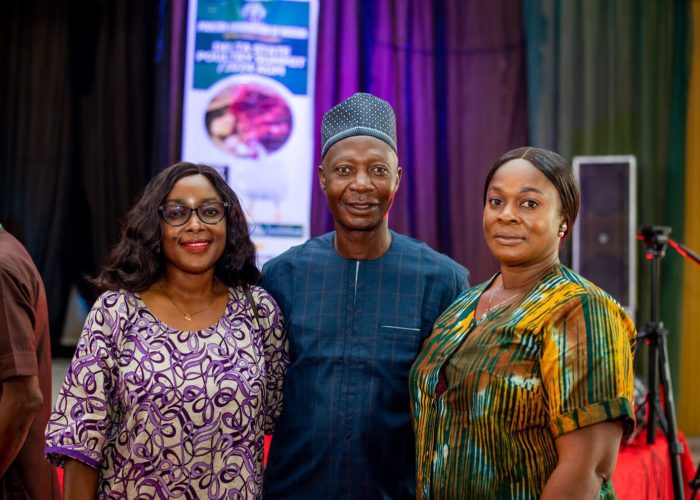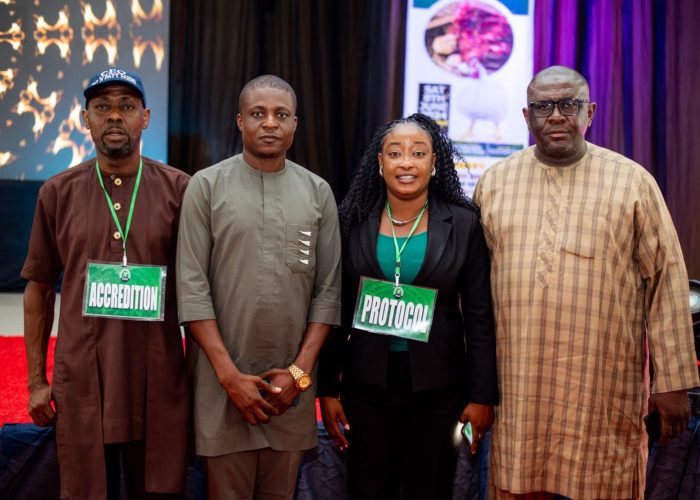On June 8, 2024, the Foundation for Partnership Initiatives in the Niger Delta (PIND) actively participated in the inaugural Delta State Poultry Summit organized by the Poultry Association of Nigeria (PAN), Delta State Chapter. Held at the PTI Conference Center Main Hall in Effurun, Delta State, the event brought together various stakeholders, including poultry farmers, feed millers, veterinary practitioners, agro-entrepreneurs, research institutions, government officials, and NGOs from Delta State and beyond.
Themed “The Role of Government, NGOs, Private Sectors, and Research Institutions for the Sustainability of Small and Medium-Scale Poultry Industry, Food Security, Employment, and Self-Reliance in Delta State,” the summit aimed to address challenges encountered by the poultry industry in Delta State and explore strategies for bolstering its sustainability and resilience.
Representing PIND Foundation, Mr. Blessing Tuoyo, a Market Systems Development (MSD) Advisor, spoke about PIND’s interventions and partnership initiatives geared towards strengthening the poultry value chain in Nigeria’s Niger Delta region. He highlighted PIND’s Market System Approach, which focuses on strengthening the support systems for poultry farmers, enhancing productivity, and promoting sustainable farming methods within the poultry sector, contributing significantly to food security, job creation, and economic growth in Delta State and the region.
“Over the past five years, PIND, in collaboration with its partners, built the capacity of at least 41 Poultry Service Providers, reaching out to almost 29,000 Poultry farmers in the region and has been able to create more than 7,500 full-time equivalents (FTE) jobs opportunities, which in turn led to about NGN 8.5 billion net attributable change in income from the increased productivity of farmers in the region,” he said.
Addressing the participants, Chief Eric Eseoghene Tomfawei, PAN, Delta State Chapter Chairman, stated that the Summit was a platform to galvanize support for small and medium-scale poultry and inputs entrepreneurs. He noted that it was necessary to salvage the industry from imminent collapse as this had a direct impact on the economy, employment, health, and, most importantly, food security, which undoubtedly are the key priorities of every government.
In June 2021 and August 2022, Delta state poultry farmers suffered significant financial losses from the deadly Avian influenza virus. Additionally, a flood crisis during the same period in 2022 displaced numerous poultry farmers in various areas, including Isoko North and South, Patani, Bomadi, Burutu, parts of Ughelli North and South, Ndokwa East and West. These events led to a considerable decline in Delta State’s active poultry sector, adversely affecting the state’s economy and resulting in the re-entry of many youths and women into the labor market.
Mr. Tomfawei expressed gratitude to PIND for the support given to the poultry industry over the years and commended the Foundation and other organizations like it for their commitment to promoting sustainable development and improving farmers’ livelihoods in the Niger Delta region.
Representing the Executive Governor of Delta State, His Excellency Rt. Hon. Sheriff Oborevwori, the Commissioner for Trade and Investment, Hon. Samuel Oligida, reaffirmed the state government’s commitment to supporting micro, small, and medium-scale farmers under the administration’s MORE Agenda, promising to provide the necessary support to ensure the success of their businesses and the sustainability of the poultry industry in the state.
Meanwhile, the National President, Poultry Association of Nigeria, (PAN), Chief Ichie Sunday Ezeobiora, stated that the poultry industry in Nigeria is indeed a rare success story in the commercialization of agriculture, driving the sub-sector of the country’s economy, thereby contributing to over 25 percent of the Livestock Agricultural Gross Domestic Product. He added that although they have been successful in the past years, the sector has faced devastating challenges since the post-COVID-19 and lockdown events.
He emphasized the need for improved conditions for farmers, including access to inputs like feeds and vaccines and partnerships with poultry actors and stakeholders to address the needs of small—and medium-scale poultry entrepreneurs in the region.
Notable attendees included Prof. Jonathan Tsetimi, a Lecturer at Delta State University, past and present executives of the Poultry Association of Nigeria, Delta State Chapter, policymakers, practitioners, and other key stakeholders in the poultry sector.

